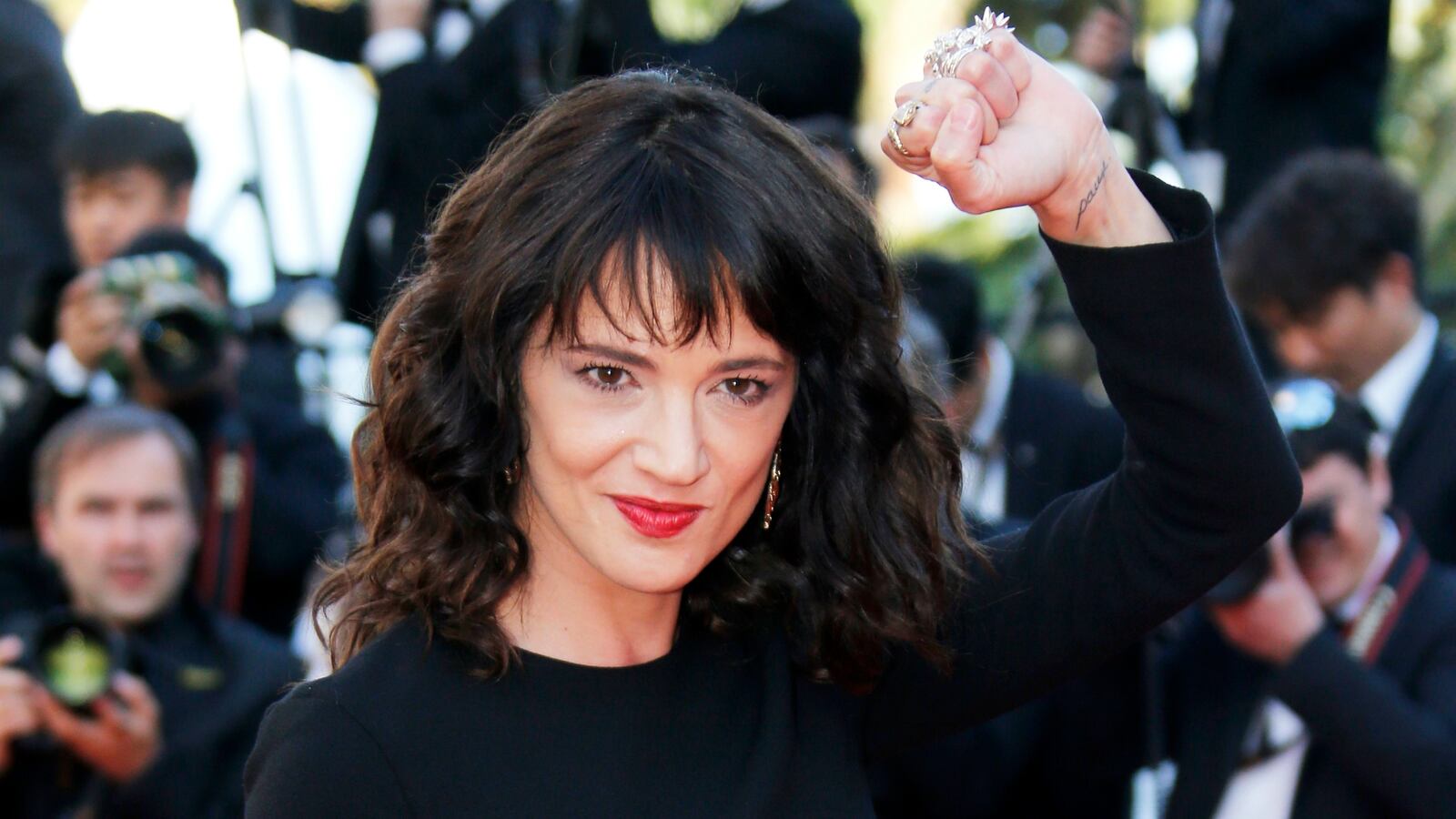A report that actress Asia Argento paid off an actor after he accused her of sexually assaulting him years ago has sparked discomfort in the #MeToo movement and cries of hypocrisy from producer Harvey Weinstein's attorney.
Rose McGowan, who like Argento accused Weinstein of rape, said her "heart is broken" by the new allegation. Fellow actress Rosanna Arquette, who says she also was abused by the Hollywood mogul, tweeted that "trauma begets trauma" after the bombshell New York Times report.
But for Weinstein, whose behavior catalyzed #MeToo into a global movement and who is awaiting trial on rape and other charges, the accusations against Argento are a weapon to be used against one of his fiercest critics.
"This development reveals a stunning level of hypocrisy by Asia Argento, one of the most vocal catalysts who sought to destroy Harvey Weinstein," Weinstein lawyer Ben Brafman said in a statement.
"What is perhaps most egregious is the timing, which suggests that at the very same time Argento was working on her own secret settlement for the alleged sexual abuse of a minor, she was positioning herself at the forefront of those condemning Mr. Weinstein, despite the fact that her sexual relationship with Mr. Weinstein was between two consenting adults which lasted for more than four years."
Italian actress and director Argento was among the first women in the movie business to publicly accuse Weinstein of sexual assault. Her accusation, along with McGowan’s, set in motion the recasting of the movie mogul into a symbol of male power abuse. Weinstein, who says all his encounters were consensual, may now face life in prison.
The New York Times reported Sunday that Argento quietly arranged to pay $380,000 to her own accuser, a former co-star who said she sexually assaulted him in a California hotel room years earlier. He was 17 at the time—the age of consent in California is 18. She was 20 years his senior at 37.
According to the court documents, the alleged abuse of the young actor and musician by Argento in 2013 began a spiral of emotional problems. His lawyer claimed that it hindered his work and income and threatened his mental health.
In 2017, a month after a New Yorker article named Argento as one of the women accusing Weinstein misconduct ranging from harassment to rape, her accuser asked for $3.5 million in damages for the intentional infliction of “emotional distress, lost wages, assault and battery.”
After the Times article, reaction from other #MeToo leader trickled out over the course of the day, with some appearing to distance themselves from her.
“I got to know Asia Argento ten months ago," McGowan wrote on Twitter. "Our commonality is the shared pain of being assaulted by Harvey Weinstein. My heart is broken. I will continue my work on behalf of victims everywhere.”
McGowan later sounded a note of caution, saying: “None of us know the truth of the situation, and I’m sure more will be revealed. Be gentle.”
Tarana Burke, who founded the #MeToo movement in 2006 before it became a much wider group in the wake of the Weinstein accusation in 2017, said the news was a timely reminder that the movement includes men and that sexual abuse is about an imbalance of power.
“I’ve said repeatedly that the #metooMVMT is for all of us, including these brave young men who are now coming forward,” wrote the #MeToo founder. “It will continue to be jarring when we hear the names of some of our faves connected to sexual violence unless we shift from talking about individuals and begin to talk about power.”
Burke added: “Sexual violence is about power and privilege. That doesn’t change if the perpetrator is your favorite actress, activist, or professor of any gender. And we won’t shift the culture unless we get serious about shifting these false narratives.”
The civil rights activist also urged people not to let the news allow others to discredit the movement they’ve worked to create, writing: “People will use these recent news stories to try and discredit this movement—don’t let that happen. This is what Movement is about. It’s not a spectator sport.”
Arquette, who was one of the first actresses to go public with an abuse claim against Weinstein, tweeted in response to Burke's post: "Thank you Tarana, as you know ... trauma begets trauma ... until we heal ourselves. we are all on a path to healing ... gratitude for being the beacon that keeps us moving forward."
And actress Jessica Barth, another Weinstein accuser, also reacted to Burke's statement:
In May, Argento made headlines with an emotional speech at the Cannes Film Festival in which she called the festival Weinstein’s “hunting ground.” She said he had raped her there in 1997, when she was just 21.
Argento has not yet commented on the payoff.






